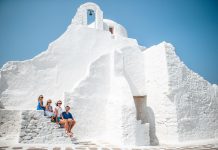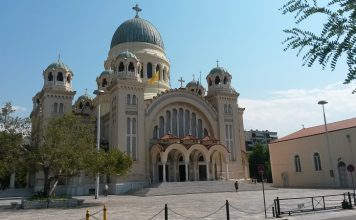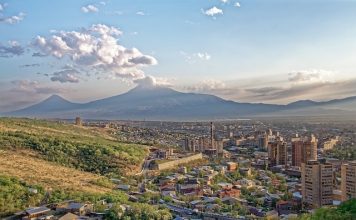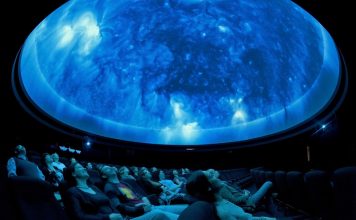Valencia is a vibrant and sunny city on the Mediterranean coast of Spain, famous for its rich history, culture, cuisine, and architecture. Valencia is the third-largest city in Spain, after Madrid and Barcelona, and has a population of about 800,000 people. Valencia was founded by the Romans in 138 BC and has been influenced by various civilizations, such as the Visigoths, the Moors, and the Aragonese. Valencia has a long tradition of trade, commerce, and industry, and its port is one of the busiest in Europe. Valencia is also known for its scientific and artistic achievements, such as the City of Arts and Sciences, a complex of futuristic buildings that house museums, an aquarium, an opera house, and a planetarium.
What is Valencia Known For?
Valencia is also famous for its cuisine, especially paella, a rice dish with meat, seafood, and vegetables that originated in the nearby Albufera lagoon. Valencia is the home of the Holy Grail, the cup that Jesus used at the Last Supper, which is kept in a chapel inside the cathedral. Valencia is also renowned for its festivals, such as Las Fallas, a celebration of fire and art that takes place every March. During this festival, hundreds of giant sculptures made of wood and papier-mâché are displayed throughout the city and then burned on the last night. Valencia is also famous for its oranges, which are sweet, juicy, and abundant. Valencia is a city that offers something for everyone: history, culture, art, nature, gastronomy, and fun.
Famous Drinks in Valencia
Valencia has a variety of drinks that reflect its Mediterranean climate and culture. Some of the most popular drinks in Valencia are:
- Horchata: A sweet and refreshing drink made from chufa (tiger nuts), water, and sugar. Horchata is usually served cold in a glass or as a granita (crushed ice). Horchata is often accompanied by fartons (elongated pastries glazed with sugar) that are dipped in the drink.
- Agua de Valencia: A delicious cocktail made from fresh orange juice, cava (sparkling wine), vodka, gin, and sugar. Agua de Valencia is usually served in a pitcher and shared among friends. Agua de Valencia was invented in 1959 by a bartender in Valencia who wanted to surprise some Basque visitors who asked for “water from Valencia”.
- Café bombón: A sweet and creamy coffee drink made with equal parts of espresso and condensed milk. Café bombón is served in a small glass so that the layers of coffee and milk can be seen. Café bombón originated in Valencia and is perfect for those who like their coffee sweet.
- Mistela: A fortified wine made from Muscat grapes that are grown in the Valencian region. Mistela is straw-colored and has fruity and floral aromas. Mistela is usually enjoyed as a digestif or paired with desserts or cheese.
- Carajillo de Castellón: A variation of carajillo (coffee with liquor) that is typical of the province of Castellón in Valencia. Carajillo de Castellón is made by heating alcohol (usually brandy, whiskey, or rum) with sugar, lemon peel, coffee beans, and optionally cinnamon sticks. The alcohol is then flamed and topped with coffee. Carajillo de Castellón has a creamy layer on top (cremate) and is served warm.
Famous Sports in Valencia
Valencia is a city that loves sports and has many teams and events that attract fans from all over the world. Some of the most famous sports in Valencia are:
- Football: Valencia has two professional football teams that play in La Liga (the top division of Spanish football): Valencia CF and Levante UD. Valencia CF was founded in 1919 and plays at the Mestalla Stadium. It has won six La Liga titles, eight Copa del Rey trophies, one UEFA Cup Winners’ Cup, one UEFA Cup, two UEFA Super Cups, and two Inter-Cities Fairs Cups. Levante UD was founded in 1909 and plays at the Ciutat de València Stadium. It has never won any major trophies but has been playing in La Liga since 2011.
- Basketball: Valencia has one professional basketball team that plays in both the Liga ACB (the top division of Spanish basketball) and the EuroLeague (the top European competition): Valencia Basket Club. Valencia Basket Club was founded in 1986 and plays at the Fuente de San Luis Arena. It has won one Liga ACB title, three Copa del Rey trophies, one EuroCup title, one FIBA Saporta Cup title, one FIBA EuroChallenge title, and one FIBA Korać Cup title.
- Motor racing: Valencia has hosted several motor racing events over the years at different circuits. The most notable ones are: The European Grand Prix, a Formula One race that was held on a street circuit around the port of Valencia from 2008 to 2012. The Valencian Community motorcycle Grand Prix, a MotoGP race that is held at the Circuit Ricardo Tormo in Cheste since 1999. The Valencia ePrix, a Formula E race that is held at the Circuit Ricardo Tormo since 2021.
- Sailing: Valencia has a strong sailing tradition and has hosted several prestigious sailing events, such as: The America’s Cup, the oldest and most prestigious trophy in international sailing, which was held in Valencia in 2007 and 2010. The Volvo Ocean Race, a round-the-world yacht race that has had Valencia as its start or finish point in several editions. The SailGP, a global sailing league that features high-performance foiling catamarans, which had Valencia as one of its venues in 2021.
Famous Streets in Valencia
Valencia has many beautiful and historic streets that showcase its diverse and rich architecture and culture. Some of the most famous streets in Valencia are:
- Carrer de la Pau: A grand street that runs from the Plaza del Ayuntamiento to the Plaza de la Reina. Carrer de la Pau is lined with elegant buildings and balconies from the 19th century that feature ornamental details. At the end of the street, there is a stunning view of the Santa Catalina church tower, one of the symbols of Valencia.
- Carrer del Trinquet de Cavallers: A small street that lies in the heart of the old city and is one of the oldest in Valencia. Carrer del Trinquet de Cavallers was once home to the aristocracy of Valencia and has several notable buildings, such as the church of San Juan del Hospital, the oldest in the city. The street is also charming at night when the streetlamps are lit.
- Carrer de Moret: A colorful street in the El Carmen neighborhood that is famous for its street art murals. Carrer de Moret is also known as “the street of colors” and has become a symbol of the artistic spirit of the area. The street art murals depict various themes and styles and are constantly changing.
- Plaça Redona: A unique square that is actually round. Plaça Redona is also known as “the round square” and has a central fountain surrounded by cafes and market stalls. The square was renovated a few years ago and has a cozy and lively atmosphere.
- Plaza de la Virgen: The most famous, historic, and beautiful square in Valencia. Plaza de la Virgen is located in front of the cathedral and has a magnificent fountain as its centerpiece. The fountain represents the Turia river and its eight irrigation channels. The square is also surrounded by other important buildings, such as the Basilica of Our Lady of the Forsaken, the patron saint of Valencia.
FAQs about Valencia
Here are some frequently asked questions about Valencia and their answers:
- What is Valencia known for? Valencia is known for its history, culture, cuisine, architecture, festivals, sports, and oranges.
- What is the best time to visit Valencia? Valencia can be visited year-round thanks to its mild Mediterranean climate. However, some of the best times to visit are spring and autumn when the weather is pleasant and there are fewer crowds. March is also a good time to visit if you want to experience Las Fallas festival.
- How many days do you need in Valencia? You can see the main attractions of Valencia in two or three days, but if you want to explore more of the city and its surroundings, you might want to stay longer. There are many day trips you can take from Valencia, such as Albufera Natural Park, Sagunto, Xàtiva, or Peñíscola.
- How do you get around Valencia? Valencia is a walkable city and most of the sights are within walking distance. However, if you want to use public transport, you have several options: bus, metro, tram, bike, or taxi. You can also rent a car if you want more flexibility.
- What are some typical dishes from Valencia? Some of the most typical dishes from Valencia are paella valenciana (rice with meat and vegetables), fideuà (noodles with seafood), all i pebre (eels with garlic and paprika), esgarraet (roasted peppers with salted cod), buñuelos (fried dough balls), orros (churros), and horchata (tiger nut drink).
See more Famous Places in Spain:
- What is Seville Famous For?
- What is Cadiz Famous For?
- What is Huelva Famous For?
- What is Caceres Famous For?
- What is Granada Famous For?
- What is Madrid Famous For?
- What is Barcelona Famous For?
- What is Valencia Famous For?
- What is Almeria Famous For?
- What is San Sebastian Famous For?
- What is Santanter Famous For?
- What is Salamanca Famous For?
- What is Oviedo Famous For?
- What is Valladolid Famous For?
- What is Cordoba Famous For?
- What is Alicante Famous For?
- What is Bilbao Famous For?
- What is Palma Famous For?
- What is Murcia Famous For?
- What is Zaragoza Famous For?














